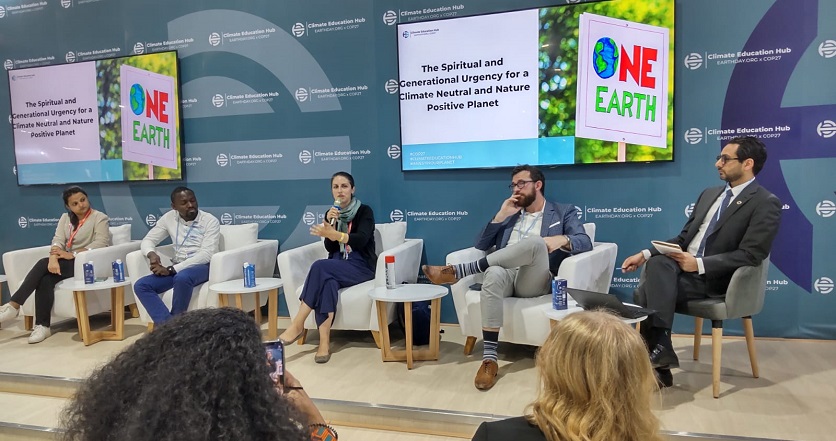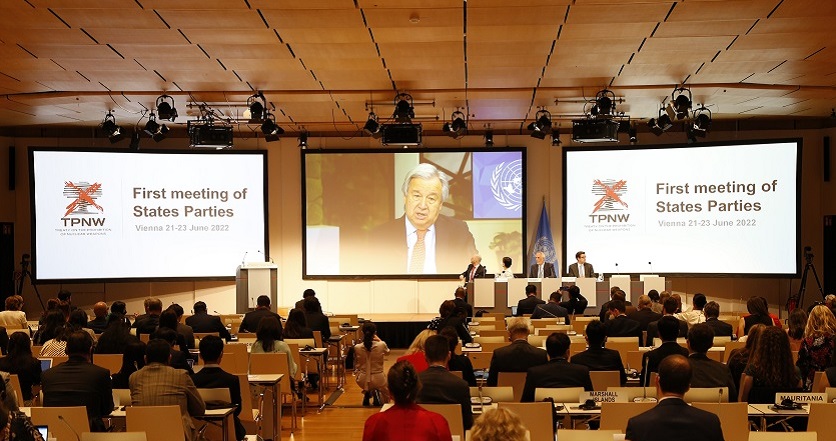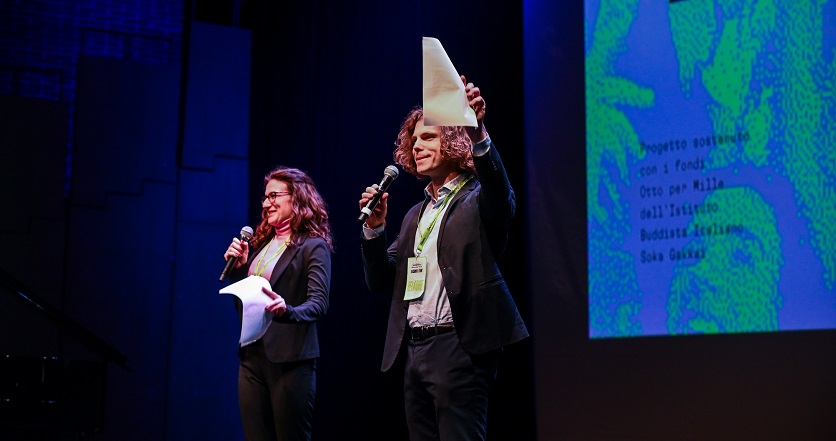Climate Action and the Need for Transformation
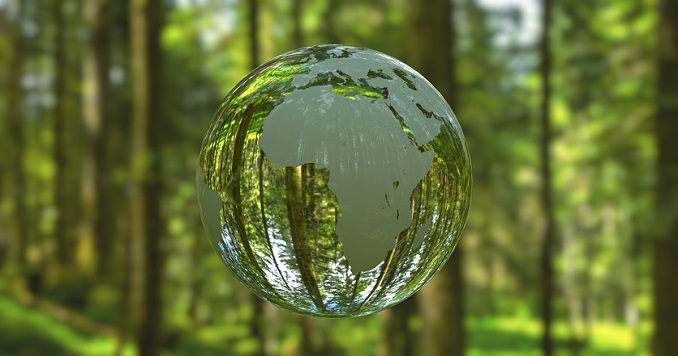
Why each of us matters in the story of climate change, and why your faith community has a particularly powerful role to play.
The naturalist David Attenborough has called it “the biggest threat to security that modern humans have ever faced.” If the climate crisis once seemed like a distant threat, the growing frequency of extreme weather events has made its reality increasingly clear. The year 2021 has been described by UN Secretary-General António Guterres as “a crucial year in the fight against climate change.”
While many feel disempowered in the shadow of such a daunting challenge, more and more people and groups want to know what they can do that will make a difference, how to transform the current trajectory of climate change.
A Critical Opportunity
In January 2021, young leaders from five faith traditions came together for a webinar to share perspectives and discuss what they are doing in their own faith communities to raise awareness and encourage positive action. The discussion highlighted the potential faith communities have to educate, inspire and rally people for this cause through their networks.
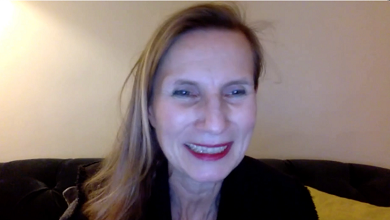
The webinar was part of a monthly series, Bodhisattvas for the Earth, that began in October 2020, organized by SGI-UK and the Centre for Applied Buddhism. Each webinar has brought together experts and activists to explore positive suggestions for a hopeful future. The series, open to the public, led up to the COP26 international climate change conference in Glasgow in November 2021, with international negotiations there seen as a crucial opportunity to keep the world below the critical 1.5 degrees warming.
Faith Is a Call to Action
The January meeting, with its interfaith focus, was entitled “Climate Action and the Need for Transformation.” Kicking it off, SGI-UK member Olivia Fuchs, who emceed the meeting and is on the steering committee of the Faith for the Climate Network, explained the particular significance of this challenge for faith groups:
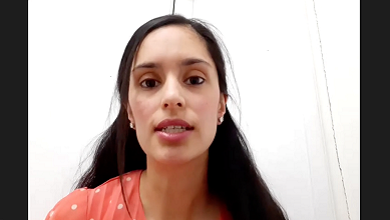
“We, as faith groups, have a powerful responsibility to take action on climate because the climate crisis is an existential threat affecting all of humanity and life on Earth at the deepest level. Similar to the COVID pandemic, it highlights inequalities and injustices, hitting poorer and disadvantaged communities hardest. As people of faith, we must try and find the moral courage to confront these injustices, to advocate for climate justice and to grapple with the profound questions of how we can transform ourselves and our society.”
Explaining the significance of “transformation” in the title of the webinar, she said, “As faith communities, we recognize the transformative potential of human beings individually and collectively, and we realize the importance of inner and outer transformation needed for us to mitigate and to respond to the climate crisis . . . We believe in the inherent creativity and potential of human beings to collaborate and find new solutions to the problems facing us. And, over time, we have evolved already strong and resilient communities that are used to supporting and caring for each other and the vulnerable.”
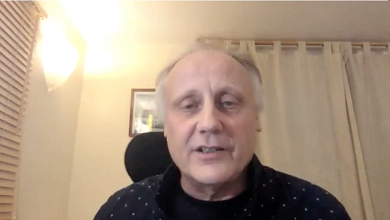
Faith in the transformative potential of human beings is at the heart of Nichiren Buddhism. As SGI-UK’s Jamie Creswell, who is director of the Centre for Applied Buddhism, described, all transformation begins from a change within our own lives—inner change leads external change. This is the concept of “human revolution.” Everything is interconnected and so each of us is important, each of us makes a difference.
Action, collaboration and education. These are the three priorities of the COP Faith Task Group, Olivia explained. Education and action are about encouraging behavioral and lifestyle changes “individually and collectively and putting our own house in order as faith communities.” And collaboration is about how can we work together as people from different faith backgrounds.
Conversations to Cutlery
The speakers were examples of how just a few individuals taking up the cause of the environment can be a mobilizing force for the larger faith community, including by influencing their own faith leaders, who in turn are able to influence their congregations.
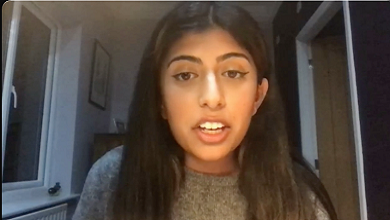
Devena Chouhan, Youth Outreach Coordinator at Hindu Climate Action, made the point: “There are just under a million Hindus in the UK. If we can start conversations in our community about climate change and the pressing actions that we need to take, we can inspire our community to go greener and help organizations to reduce their climate footprint.” Such is the power of community.
Examples shared by these activists of educational initiatives within their respective communities included:
- streamed monthly conversations with experts;
- workshops with imams;
- workshops with students;
- the sharing of information and resources through social media;
- video resources and pamphlets like “A Muslim’s Guide to Sustainable Living,” which draws on the teachings of Islam to encourage people to live more sustainably;
- the Small Footsteps project that brings children of different faiths together to learn about sustainable living;
- the promotion of ethical consumerism; and
- teaching people about managing household waste.
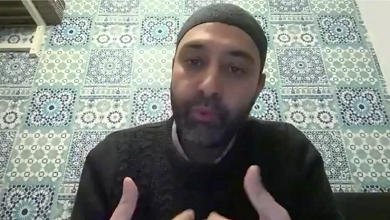
Examples of action ranged from clean-ups and international tree planting campaigns to the greening of places of worship; promoting the use of green spaces within the community to promoting careers in environmental fields. Kamran Shezad, sustainability lead for the Bahu Trust and climate change advisor to the Mosques and Imams National Advisory Board in the UK, described an initiative through which mosques switched from using plastic cutlery and crockery to using biodegradables or reusables for iftar—the evening meal that breaks the daily fast during the month of Ramadan. One of these may involve hundreds of people at any one mosque.
The Nature of Transformation
But, as Kamran noted, “Our main transformation needs to be spiritual. We can organize as many events and activities as we want, but they are not going to be genuine, and they won’t really work if they are not tied into our faith values . . . they will only be talk and gestures.”

Each faith tradition has teachings which ground people in a sense of respect for nature—the responsibility of stewardship of God’s creation in the Abrahamic religions, the Hindu injunctive to see the divinity in all living things, the Buddhist teaching of the interdependence of all life, and the oneness of creation in the Sikh religion. When we examine the roots of our respective traditions, we see that our spirituality is woven together with the Earth’s ecology. Recalling these spiritual roots can provide a powerful impetus to promote care for the planet, safeguarding it for future generations.
As Talia Chain, CEO of Sadeh farm, a UK-based Jewish farm and environmental retreat center, noted: religions are perfectly placed to think about the next generation in a way that governments aren’t. Governments have short-term perspectives, whereas religions are about passing on traditions across generations. “Will there be a world for our children’s children’s children to grow up in? Surely that needs to be at the center of everything we do as religious people.”
From the presenters there was also a sense of deep appreciation for the collaborative aspect of the endeavour—as well as a shared sense of crisis and urgency, the sense of shared mission and the opportunity to learn from and inspire each other.
(See also A Buddhist Response to the Climate Crisis, an excerpt from the first webinar presentation in this series)





